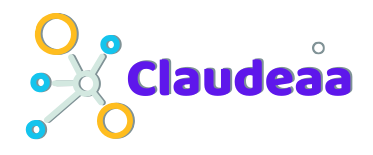In an era of digital transformation, educational institutions worldwide are leveraging technology to improve teaching and learning experiences. Azerbaijan State Oil and Industry University (ADNSU) is no exception, and its implementation of the Learning Management System (LMS), known as ADNSU LMS, reflects a significant step forward in enhancing education for students, faculty, and administrators. This platform is designed to facilitate and improve access to course materials, assignments, assessments, and communication, making the educational process more efficient and adaptable to the needs of today’s learners.
This article explores how ADNSU LMS is transforming the educational landscape at Azerbaijan State Oil and Industry University, outlining its features, benefits, challenges, and the future of digital learning at ADNSU.
1. Introduction to ADNSU LMS
The Learning Management System (LMS) is a digital tool that helps institutions manage the entire learning lifecycle. From providing access to course materials to facilitating communication between students and instructors, an LMS is a hub for academic interactions. ADNSU LMS is tailored to support the unique needs of Azerbaijan State Oil and Industry University, enabling students to easily access resources related to their specialized fields, particularly in oil and industry sectors.
The platform is integrated with various digital resources, assignment tools, discussion forums, and multimedia content. By consolidating these functions into one platform, ADNSU LMS aims to provide students and faculty with a comprehensive digital environment that supports all aspects of academic study, from classroom learning to independent research and collaboration.
2. Key Features of ADNSU LMS
ADNSU LMS incorporates several features that are essential for a modern, user-friendly, and functional learning platform. Some of these include:
- Course Management: Professors and instructors can create, organize, and manage their courses within the LMS, uploading syllabi, lecture notes, reading materials, videos, and other resources that students need for their coursework. The system also allows for course customization to suit specific learning objectives.
- Assignment and Assessment Tools: ADNSU LMS offers tools to facilitate the creation, submission, and grading of assignments. Professors can create quizzes, exams, and assignments, while students can upload their work and receive feedback directly within the platform.
- Interactive Forums and Communication: Communication between students and professors is streamlined through discussion boards, messaging, and announcements, fostering a more connected learning environment. This also encourages peer-to-peer interaction, which can be beneficial for collaborative projects and group study.
- Multimedia Integration: In addition to traditional text-based resources, ADNSU LMS supports multimedia content like videos, presentations, and simulations, which enhance the learning experience and make complex concepts more accessible, especially in technical and specialized subjects.
- Performance Tracking and Analytics: The platform provides insights into student progress and engagement, helping both students and faculty track performance. Students can monitor their grades and receive timely feedback, while instructors can identify areas where students may need additional support.
- Mobile Accessibility: With the ADNSU LMS mobile app, students and instructors can access course content and resources on their smartphones or tablets, allowing for flexible learning on the go.
3. Benefits of ADNSU LMS for Students and Faculty
ADNSU LMS brings significant benefits to the university community by creating a centralized, organized, and efficient way to manage academic tasks. Some of the key advantages include:
- Improved Access to Resources: By consolidating all learning materials in one place, students can access resources anytime and from anywhere. This is particularly advantageous for students who may be balancing other commitments, such as internships, part-time jobs, or research projects.
- Enhanced Learning Flexibility: The platform supports both synchronous and asynchronous learning, allowing students to engage with course materials at their own pace. This flexibility is essential for modern students who may have different learning styles and preferences.
- Streamlined Administrative Tasks: ADNSU LMS automates many administrative tasks, such as grade tracking and assignment submission, which reduces the workload for faculty and allows them to focus on teaching and mentoring.
- Opportunities for Collaboration: The interactive forums, group tools, and messaging options within ADNSU LMS encourage collaboration and peer-to-peer learning, which are critical skills for future industry professionals.
- Data-Driven Insights for Improvement: Analytics provided by the LMS give instructors and administrators valuable insights into student performance, engagement levels, and potential areas for improvement. This data-driven approach helps the university make informed decisions to enhance the curriculum and address student needs.
4. Impact of ADNSU LMS on Education at Azerbaijan State Oil and Industry University
The implementation of ADNSU LMS has had a transformative impact on education at the university. By providing a structured and efficient platform, ADNSU LMS supports students’ academic development in several ways:
- Accessibility for a Diverse Student Population: ADNSU serves a diverse student body, including international students and those with varying levels of digital proficiency. ADNSU LMS’s user-friendly interface and comprehensive support resources make it easier for all students to engage in their studies.
- Focus on Specialized Knowledge Areas: ADNSU’s specialization in oil and industry education means that students require access to industry-specific resources and tools. ADNSU LMS provides a structured platform where students can engage with simulations, case studies, and industry-specific content that enhance their learning and prepare them for future careers.
- Blending Theory with Practical Application: Many courses at ADNSU focus on technical skills that require practical application. The LMS supports the integration of multimedia and interactive content, allowing students to engage with both theoretical and practical knowledge.
- Strengthening the Student-Instructor Relationship: With more avenues for communication and feedback, ADNSU LMS has helped foster stronger relationships between students and instructors, allowing for a more supportive learning environment.
5. Challenges and Areas for Improvement
While ADNSU LMS has introduced numerous benefits, implementing an LMS also presents challenges that the university must address to maximize its effectiveness:
- Technical Issues and Connectivity: Students and faculty may encounter technical difficulties with the LMS, particularly if internet connectivity is unstable. Addressing these issues requires ongoing technical support and investment in digital infrastructure.
- Training for Users: Some students and instructors may require training to fully utilize the platform’s features. Providing tutorials, workshops, and continuous support is essential to ensure that all users can make the most of ADNSU LMS.
- Maintaining User Engagement: Encouraging consistent use of the LMS requires regular updates, engagement strategies. It integrating more interactive features to keep students and instructors actively involved.
- Data Privacy and Security: With the digitalization of academic resources and personal data. It maintaining data security and user privacy is a top priority. ADNSU must ensure the platform complies with data protection regulations to safeguard student information.
6. Future Prospects for ADNSU LMS
As technology continues to evolve, the future of ADNSU LMS looks promising. Several initiatives and advancements could further enhance the platform:
- Enhanced Personalization: ADNSU could integrate AI-driven personalization features that adapt content to individual learning preferences, helping each student achieve optimal results.
- Expanded Multimedia and Virtual Labs: Introducing more multimedia resources and virtual lab environments. It could help students engage in hands-on learning remotely, especially beneficial for technical courses.
- Integrating Gamification: By incorporating elements of gamification, such as achievements and interactive. These quizzes, ADNSU LMS could increase student motivation and make learning more engaging.
- Data-Driven Course Development: The data collected from student performance analytics can provide valuable feedback for curriculum development, allowing ADNSU to continuously improve its course offerings and adapt to student needs.
7. Conclusion
ADNSU LMS is a vital asset in Azerbaijan State Oil and Industry University’s mission. It provide a high-quality, accessible, and future-ready education for its students. By consolidating resources, streamlining communication, and offering a flexible learning environment. ADNSU LMS supports the academic success of students and the instructional needs of faculty.
The platform not only prepares students for careers in their specialized fields. But also equips them with essential digital and collaborative skills that are invaluable in today’s workplace. As the university continues to develop and improve its LMS, ADNSU stands at the forefront of educational innovation. Exemplifying how technology can enhance learning experiences and academic outcomes.




